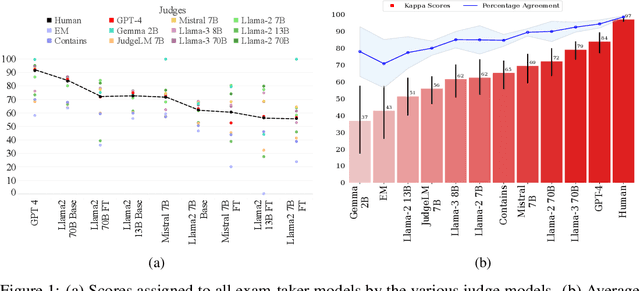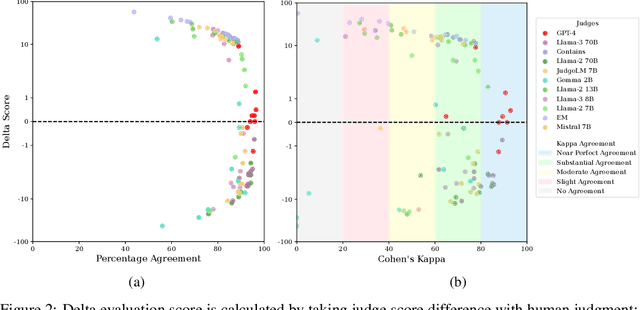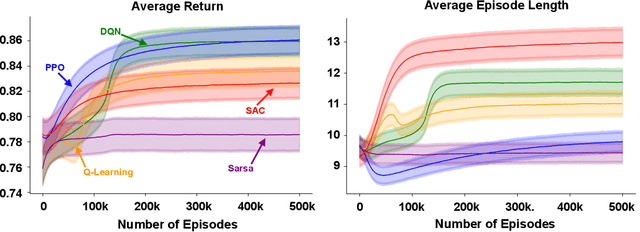Kartik Choudhary
Judging the Judges: Evaluating Alignment and Vulnerabilities in LLMs-as-Judges
Jun 18, 2024



Abstract:Offering a promising solution to the scalability challenges associated with human evaluation, the LLM-as-a-judge paradigm is rapidly gaining traction as an approach to evaluating large language models (LLMs). However, there are still many open questions about the strengths and weaknesses of this paradigm, and what potential biases it may hold. In this paper, we present a comprehensive study of the performance of various LLMs acting as judges. We leverage TriviaQA as a benchmark for assessing objective knowledge reasoning of LLMs and evaluate them alongside human annotations which we found to have a high inter-annotator agreement. Our study includes 9 judge models and 9 exam taker models -- both base and instruction-tuned. We assess the judge model's alignment across different model sizes, families, and judge prompts. Among other results, our research rediscovers the importance of using Cohen's kappa as a metric of alignment as opposed to simple percent agreement, showing that judges with high percent agreement can still assign vastly different scores. We find that both Llama-3 70B and GPT-4 Turbo have an excellent alignment with humans, but in terms of ranking exam taker models, they are outperformed by both JudgeLM-7B and the lexical judge Contains, which have up to 34 points lower human alignment. Through error analysis and various other studies, including the effects of instruction length and leniency bias, we hope to provide valuable lessons for using LLMs as judges in the future.
ICU-Sepsis: A Benchmark MDP Built from Real Medical Data
Jun 09, 2024



Abstract:We present ICU-Sepsis, an environment that can be used in benchmarks for evaluating reinforcement learning (RL) algorithms. Sepsis management is a complex task that has been an important topic in applied RL research in recent years. Therefore, MDPs that model sepsis management can serve as part of a benchmark to evaluate RL algorithms on a challenging real-world problem. However, creating usable MDPs that simulate sepsis care in the ICU remains a challenge due to the complexities involved in acquiring and processing patient data. ICU-Sepsis is a lightweight environment that models personalized care of sepsis patients in the ICU. The environment is a tabular MDP that is widely compatible and is challenging even for state-of-the-art RL algorithms, making it a valuable tool for benchmarking their performance. However, we emphasize that while ICU-Sepsis provides a standardized environment for evaluating RL algorithms, it should not be used to draw conclusions that guide medical practice.
 Add to Chrome
Add to Chrome Add to Firefox
Add to Firefox Add to Edge
Add to Edge